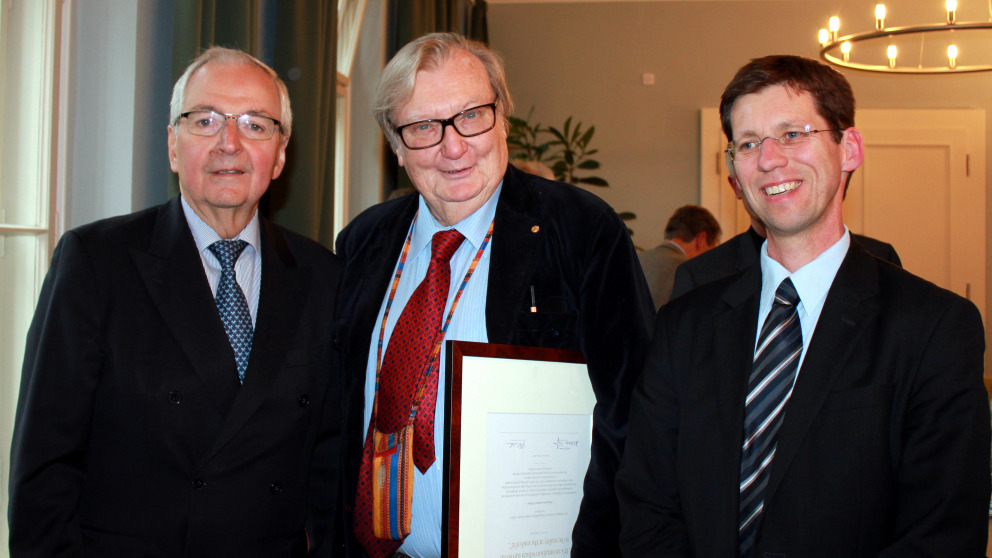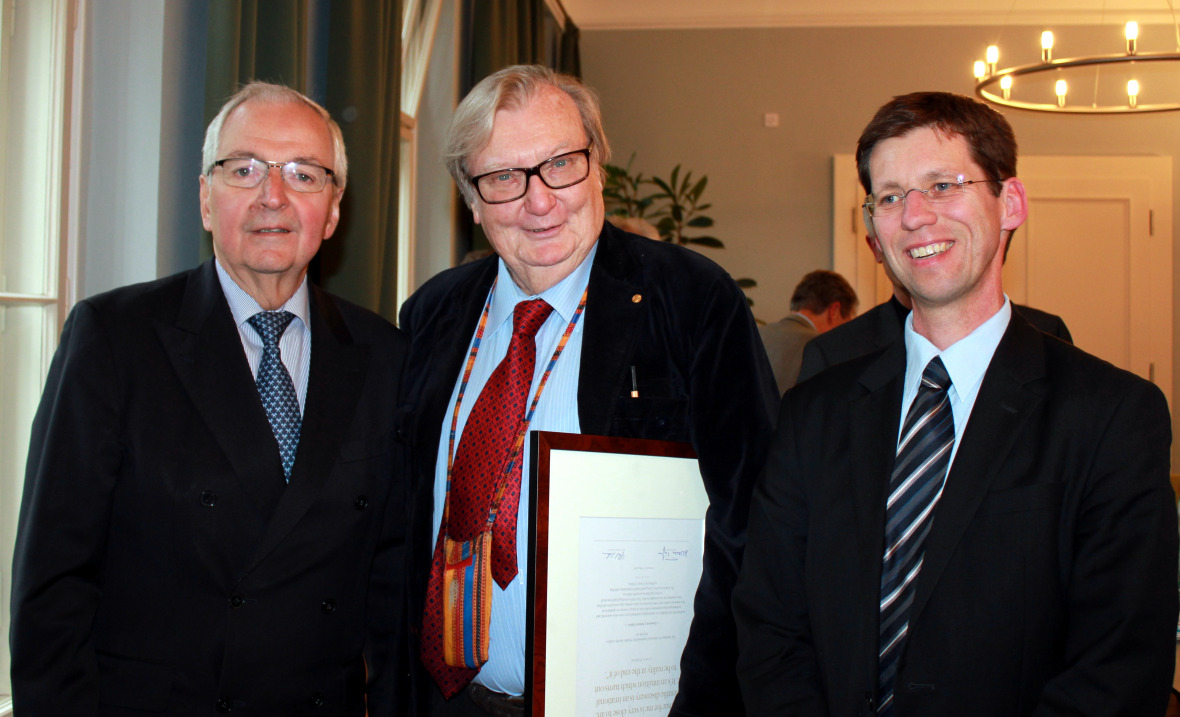Headline:
Cutting-Edge Science for a Sustainable Society: IASS Bids Farewell to Scientific Director Carlo Rubbia
Nobel Laureate completes his mandate

After five years as Scientific Director at the helm of the IASS, Carlo Rubbia left his position at the end of May for new endeavours and to continue his research activities both in physics and renewable energy solutions. During the farewell ceremony, IASS Executive Director Klaus Töpfer expressed warm appreciation for Rubbia’s contribution to establishing a new kind of institute focused on the role of civil society in science: “We started this courageous process together and I am extremely happy that in those days we were able to convince you to join us. That was really a breakthrough. We made a good effort to combine cutting-edge science with the question of the transformation and integration of society.” Rubbia, who was awarded the Nobel Prize in Physics in 1984, participated in the 2007 Potsdam Nobel Laureates Symposium “Global Sustainability – A Nobel Cause”, which led to the inception of the IASS. He subsequently joined the newly founded IASS in 2010 on a five-year mandate, which he has now completed. Alongside Klaus Töpfer, he launched the institute’s very first research projects.

Carlo Rubbia accepts appointment as Honorary Senior Fellow
Carlo Rubbia will maintain close ties with the institute as an Honorary Senior Fellow — an appointment which was already bestowed by the IASS upon Nobel Laureate Paul Crutzen. Hans Joachim Schellnhuber, Director of the Potsdam Institute for Climate Impact Research (PIK) and Deputy Chair of the IASS Strategy Advisory Board, emphasised in his farewell speech that innovation was always very important for Rubbia, saying: “You are an inventor. We should do everything to keep your legacy and all your achievements.”
Carlo Rubbia’s scientific background is long and diverse: after spending a large part of his career in the field of fundamental physics, he increasingly dedicated himself to finding solutions to the sustainability challenges of our times, and specifically to energy-related issues. Upon joining the newly founded IASS, he brought his expertise and scientific insights as well as his many connections with organisations in the world of science, politics and business. As Scientific Director of the Earth, Energy and Environment research cluster, he headed activities related to the transformation of energy systems, a topic that has since become one of the major research areas of the institute.
New technologies for a better electricity transmission system
A core component of this endeavour was focused on the advancement of new technologies. For instance, together with CERN, the European Organization for Nuclear Research in Geneva, the IASS has been developing under his leadership a new concept for the electricity transmission system of the future. Based on superconductivity, this new type of electricity lines would provide benefits in terms of costs, efficiency and environmental impact, in response to the needs of a changing energy landscape. After passing the experimental phase, the IASS will continue this work as a member of the EU-funded “Best Paths” consortium.
Similarly, other projects initiated by Rubbia investigate how to use natural gas for energy production without emitting CO2, and how CO2 could be turned from a liability into an asset. In each case, a crucial concern is to ensure that scientific findings are responsive to societal needs and transformation strategies. In this context, Rubbia’s contribution has always been key, allowing the IASS to establish important partnerships with relevant entities at the national and international levels. For example, part of his work on concentrated solar power involved reaching out to local and global actors to facilitate practical implementation strategies in sun-rich regions like South America.
Carlo Rubbia’s participation in numerous high-level events and conferences provided an opportunity to publicise the research activities of the IASS and to raise awareness of critical sustainability issues. Furthermore, his continuous engagement with stakeholders all over the world has enabled a better understanding of societal demands and ensured that the IASS directs its research efforts towards areas with high transformative potential. In his five years as Scientific Director, Carlo Rubbia has actively contributed to shaping and growing the IASS and now leaves a stronger and better-established institution.
05.06.2015
